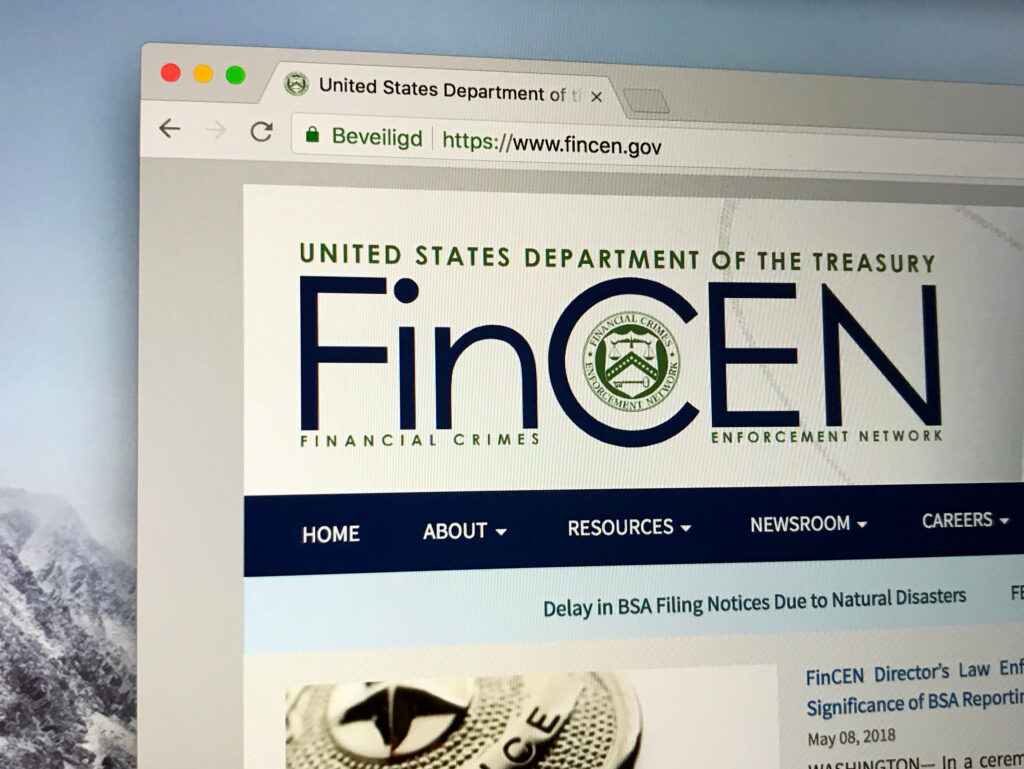The Federal Reserve expects the Board of Directors of Financial Institutions to be Effective

On February 26, 2021, the Federal Reserve issued Supervisory Guidance (SG) for the Board of Directors (BOD) of Domestic Bank and Savings and Loan Holding Companies requiring effective BOD oversight. The Guidance maintains that the BOD serves a critical role in maintaining a Financial Institution’s safety and soundness, compliance with laws and regulations, and […]
FinCEN is seeking Feedback on the Corporate Transparency Act (CTA)

The CTA is a recent reporting requirement that is expected to enhance U.S. national security through increasing the difficulty involved for harmful actors to exploit opaque legal structures for laundering money, financing terrorism, proliferating weapons of mass destruction, trafficking humans, and drugs, and committing tax fraud and other crimes. Included in the AML Act of […]
IRS sends “Soft Letters”

An IRS “soft letter” is an IRS “tickler”. IRS will send a “soft letter” to provide an opportunity for the Taxpayer to address an issue that could avoid the need for further IRS contact or examination. If a Taxpayer does not respond, or the explanation is inadequate, the IRS could initiate an examination. The soft […]
Closing a Foreign Bank Account will not solve a Taxpayer’s Disclosure Problem

IRS is interested in U.S. Taxpayer financial accounts everywhere in the world. If the IRS learns that a Taxpayer has undisclosed reportable accounts or income before a US Taxpayer reports them, the Taxpayer can face serious consequences including criminal prosecution. Taxpayers under the impression that closing a foreign bank account today will solve a lack […]
Extra Time Provided for Filing 2020 Taxes may offer Financial Planning Opportunity

The federal income tax filing due date for individuals for the 2020 taxes has been extended from April 15, 2021, to May 17, 2021. Individual taxpayers can also postpone federal income tax payments for the 2020 tax year due on April 15, 2021, to May 17, 2021, without penalties and interest, regardless of the amount […]
Have you hired the right Tax Preparer to prepare your Taxes?

Tax Season is here. Tax Preparers have different levels of skills, education and expertise and Taxpayers ought to take a closer look at what constitutes a “Qualified” Tax Preparer. There are various types of regulated Tax Preparers, including Certified Public accountants (CPAs), Enrolled Agents, and Attorneys. CPAs, Enrolled Agents and Attorneys are “Qualified” by IRS […]
19 possible Questions that your Tax Preparer ought to Ask regarding Foreign Accounts and Assets

Many Taxpayers with international entanglements seek the assistance of tax return preparers without U.S. international tax reporting experience. Because US International tax reporting is complicated and often overwhelming for US Taxpayers, international tax specialist CPA is the appropriate choice for the work. When an inappropriate US international income tax compliance preparer is not hired, the […]
How does the IRS enforce the Nation’s Tax Laws for the benefit of all Taxpayers?

On December 17, 2020, the IRS published a document entitled “Closer Look”. It explains the IRS aspiration for balancing the Taxpayer burden with the potential benefit of its compliance effort when deciding which compliance tool to use. The goal of the IRS is to minimize taxpayer burden while encouraging voluntary compliance through utilizing the most […]
Forensic Accountants augment a Financial Institution’s Corporate Governance Program

A financial institution’s understanding and management of financial crimes and their genesis would enhance and strengthen its Corporate Governance programs and internal controls. Forensic Accountants with a law enforcement background and with an understanding of the provisions of the Bank Secrecy Act (BSA), Title 31, rules and regulations issued by the federal bank supervisory agencies […]
Included in the AML ACT of 2020 is the Corporate Transparency Act which outlines Beneficial Ownership Reporting Requirements

The Corporate Transparency Act (CTA) is within the AML Act of 2020. It establishes Beneficial Ownership Information Reporting Requirements to facilitate important national security, intelligence, and law enforcement activities; and confirm beneficial ownership information provided to financial institutions to facilitate the compliance of the financial institutions with anti-money laundering, countering the financing of terrorism, and […]
Will the Perception of the USA as a Preferred Tax Haven be Jeopardized Going Forward?

Changes to the Bank Secrecy Act incorporated into the National Defense Authorization Act (NDAA) contain requirements for beneficial ownership disclosure by covered legal entities at the time of their creation for inclusion in a database that will be accessible by USA and foreign law enforcement, regulators, and AML compliant US financial institutions. Why is there […]
How will the AML Act of 2020 (the “Act”) Required Examiner Training Impact your Financial Institution?

Section 6307 of the Act requires annual Anti-Money Laundering and Countering the Financing of Terrorism training for Examiners. The training is to be done in consultation with FinCEN and all levels of law enforcement, including federal, state, tribal, and local. Training Requirement Defined by Section 6307 Each Federal examiner reviewing Bank Secrecy Act compliance with […]

